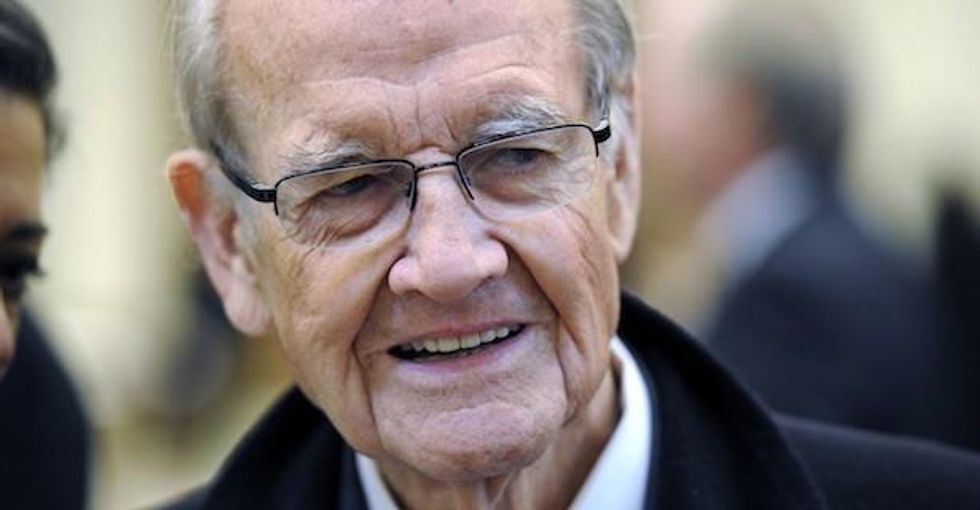Speaking at the Democratic National Convention in 1972, George McGovern kicked off his ill-fated presidential bid by focusing on his opposition to the ruinous war in
Vietnam. "I have no secret plan for peace. I have a public plan. And as one whose heart has ached for the past ten years over the agony of Vietnam, I will halt a senseless bombing of Indochina on Inaugural Day," he said. "There will be no more Asian children running ablaze from bombed-out schools. There will be no more talk of bombing the dikes or the cities of the North. And within 90 days of my inauguration, every American soldier and every American prisoner will be out of the jungle and out of their cells and then home in America where they belong. And then let us resolve that never again will we send the precious young blood of this country to die trying to prop up a corrupt military dictatorship abroad. This is also the time to turn away from excessive preoccupation overseas to the rebuilding of our own nation. America must be restored to a proper role in the world. But we can do that only through the recovery of confidence in ourselves."
Over the course of his career, McGovern made a lot of arguments that I personally find unpersuasive. But he sure did get the most important issue of his time right. Think of all the Americans who'd be alive today if the country had listened to McGovern rather than his opponents about the
Vietnam War. Think of all the veterans who'd have been better off. Think of how many Vietnamese civilians would've been spared death by napalm. But America didn't listen.
The country would eventually come to see Vietnam as a mistake.
But ours is a people who are dismissive of men who lose presidential elections. We behave as though the electoral outcome discredited their ideas, even on matters where they're ultimately proved right.
Of course, it was about more than one war for McGovern. A World War II veteran, he liked to say that he'd been persuaded by Dwight Eisenhower, under whom he served, about the dangers of the military industrial complex. The Democratic Party grew comfortable with it over time.
But McGovern never did.
When America launched its war in Iraq, a lot of Democrats signed on. McGovern opposed it. "I oppose the Iraq war, just as I opposed the Vietnam War, because these two conflicts have weakened the U.S. and diminished our standing in the world and our national security," he wrote.
He was right again.
After Obama took office, McGovern wrote him
an open letter, published in
Harper's magazine, that said, "When I entered the U.S. Senate in 1963, the defense budget was $51 billion. This was at a time when our military experts felt it necessary to have the means to win a war against the combined powers of Russia and China. Today we have a military budget of over $700 billion, and yet neither Russia nor China threatens us, if indeed they ever did. Nor does any other nation."
Once again, few Americans are listening.
It's strangely common to think of men defeated in presidential elections as losers, though they are invariably men who'd be regarded as especially accomplished if they'd never run for the office. McGovern was a decorated combat veteran, a college professor, a three term senator, and a humanitarian who worked for years to alleviate global hunger, among other things. As he lays dying in hospice, his country remains as beholden to the military industrial complex as ever, years after the decisive defeat of its only credible geopolitical foe. When the obituaries are published, they'll note McGovern's electoral loss. It's far less likely that they'll note the two ruinous wars America would've been spared had its leaders and voters taken McGovern's advice.
The failure wasn't his, it was ours.






